Sam Altman named "a genius master-class strategist" as OpenAI deals with Apple and iPhone outside of its Microsoft partnership
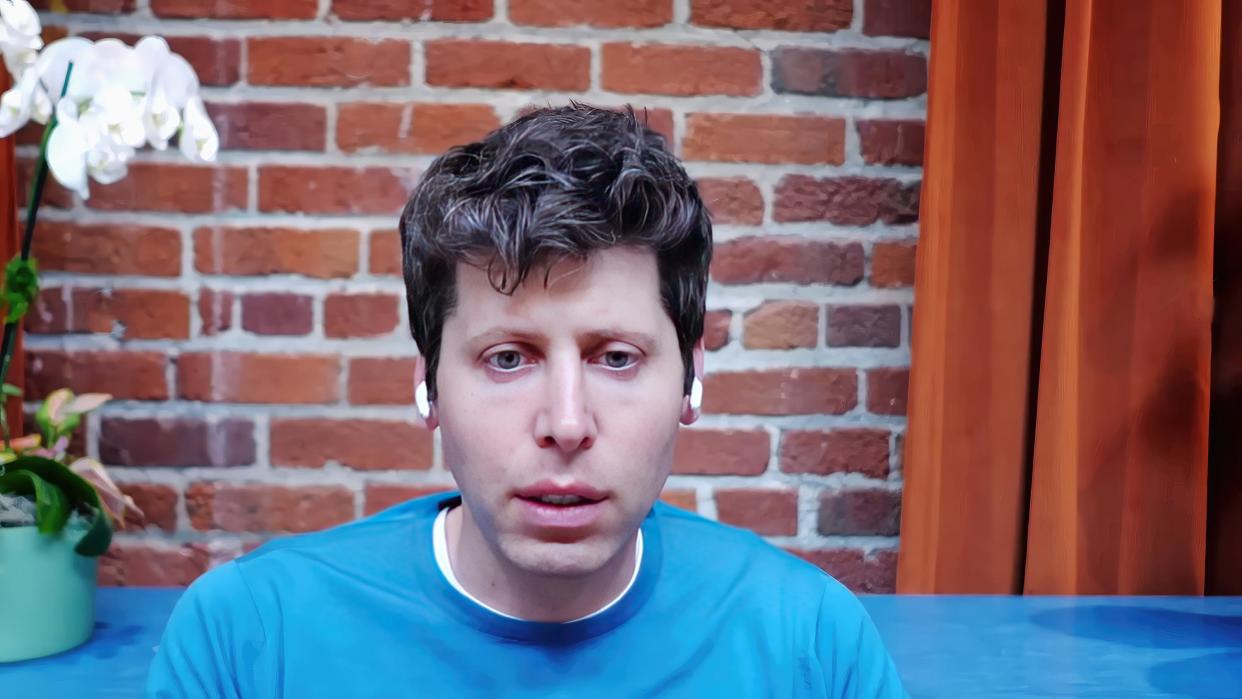
- Oops!Something went wrong.Please try again later.
- Oops!Something went wrong.Please try again later.
What you need to know
Sam Altman has reportedly negotiated a new deal with Apple to bring ChatGPT to the iPhone.
OpenAI's partnership with Microsoft grants it access to infinite computing and forever customers.
Two employees left OpenAI as it announced its new flagship GPT-4o model.
Reports flooding the internet indicated OpenAI and Apple are ironing out final details in a new deal that would see ChatGPT make its debut on iPhones and the soon-to-ship iOS 18 update.
Alongside the new flagship GPT-4o model, OpenAI unveiled its new macOS app snubbing Windows despite Microsoft's heavy investment in the company. OpenAI explained that the decision to ship ChatGPT to Mac users was centered on the fact that it was prioritizing where its users are. This potentially indicates that most ChatGPT users use Apple devices.
Top OpenAI executives depart from the company
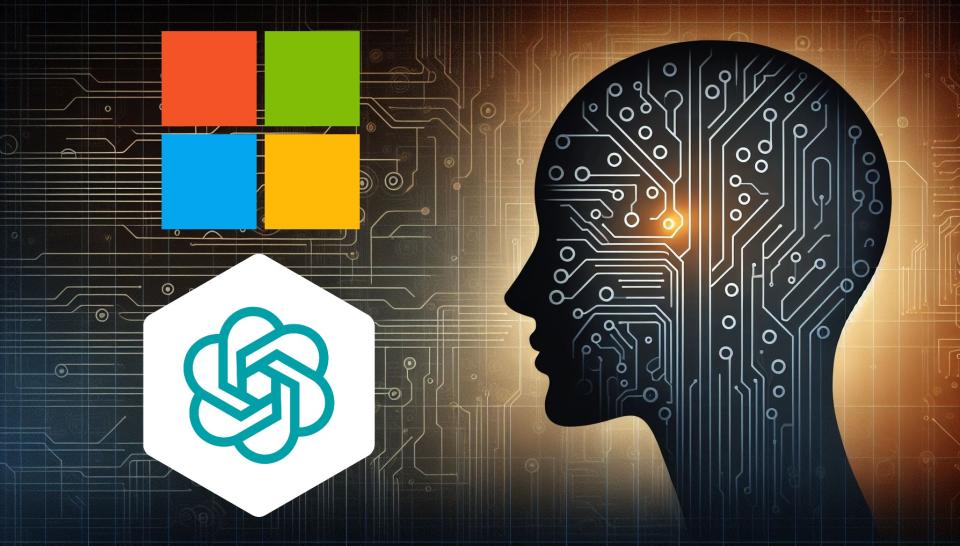
OpenAI has had a busy week launching a new flagship GPT-4o model at its just-concluded Spring Update event that can reason across audio, vision, and text in real-time, making interactions with ChatGPT more intuitive.
Strangely enough, the ChatGPT maker has lost a couple of employees during this crucial week in its history. Ilya Sutskever, co-founder and Chief Scientist at OpenAI announced he was leaving the hot startup after almost a decade for a project that's "personally meaningful." While the details remain slim, Sutskever indicated that he'd disclose more details about his next move in due time.
Sutskever added:
"The company’s trajectory has been nothing short of miraculous, and I’m confident that OpenAI will build AGI that is both safe and beneficial under the leadership of Sam Altman and other top executives."
A few days later after Sutskever, @signüll on X (formerly Twitter) announced they'd resigned from OpenAI, too. They've since updated their profile on X to reflect that they are now General Partner at Sequoia Capital — a company offering financial services to help "build legendary companies from idea to IPO and beyond."
The former OpenAI employee didn't disclose why they were resigning from the company but provided a bit of insight into what's going on within the company. In a post on X, Signüll describes OpenAI's CEO Sam Altman as "a genius master class strategist. He used the enemy of my enemy principle to perfection."
Signüll listed the following as the premise for the statements highlighted above:
He neutralized the Elon Musk threat completely.
He negotiated an incredible deal with Microsoft CEO Satya Nadella for infinite computing & forever customers.
He negotiated a new deal with Apple to make OpenAI native on iPhone to capture consumer zeitgeist & usage.
"OpenAI now sits squarely between two of the largest companies in both consumer & enterprise. He forever cemented OpenAI as the defacto name when anyone in the world thinks of “AI” & turned every single OpenAI weakness into a strength—the only guy that could make Google dance & be put in a massively uncomfortable position. Absolutely incredible execution."
Microsoft and OpenAI's complicated partnership might be too complex to comprehend
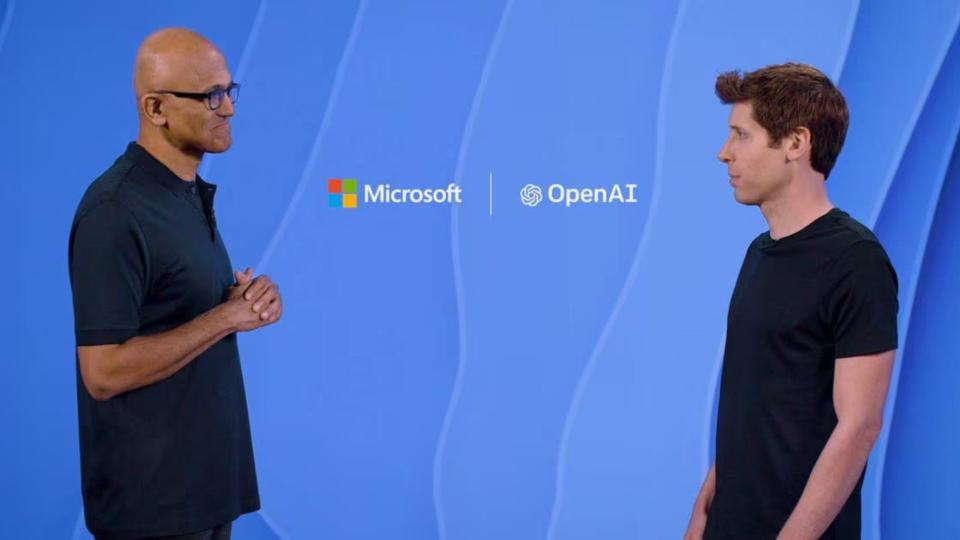
Microsoft's multi-billion dollar investment in OpenAI and its technology allowed it to cozy up to AI and integrate it across most of its products and services and is now the world's most valuable company with over $3 trillion in market capitalization, ahead of Apple.
But the partnership hasn't been a walk in the park either, this is especially true after last year's OpenAI fiasco that led to Sam Altman's firing and reinstatement as CEO by the board of directors. During this period, Microsoft was quiet but rumors hitting the windmill indicated the company was ready to absorb hundreds of OpenAI staffers into its new AI division at its LinkedIn offices in San Francisco.
As you may know, Microsoft holds a 49% stake in OpenAI's for-profit arm, which essentially means it stands to lose a lot if OpenAI's success is short-lived. Interestingly, this doesn't seem to faze Microsoft CEO Satya Nadella:
"We were very confident in our own ability. We have all the IP rights and all the capability. I mean, look, if tomorrow OpenAI disappeared, I don’t want any customer of ours to be worried about it, quite honestly, because we have all of the rights to continue the innovation, not just to serve the products. But we can go and just do what we were doing in partnership, ourselves, and so we have the people, we have the compute, we have the data, we have everything."
Satya Nadella has previously indicated that OpenAI wouldn't have existed without Microsoft's early investment and adoption of its technology and services. Interestingly, the former OpenAI staffer disclosed that most people don't understand the complicated partnership between Microsoft and OpenAI. The deal reportedly includes "a very fun clause."
Once OpenAI hits the coveted AGI status, Microsoft will have zero IP, and despite its 49% stake, it'll have no control. OpenAI and CEO Sam Altman will reportedly take all the credit.
Sam Altman and Satya Nadella on superintelligence
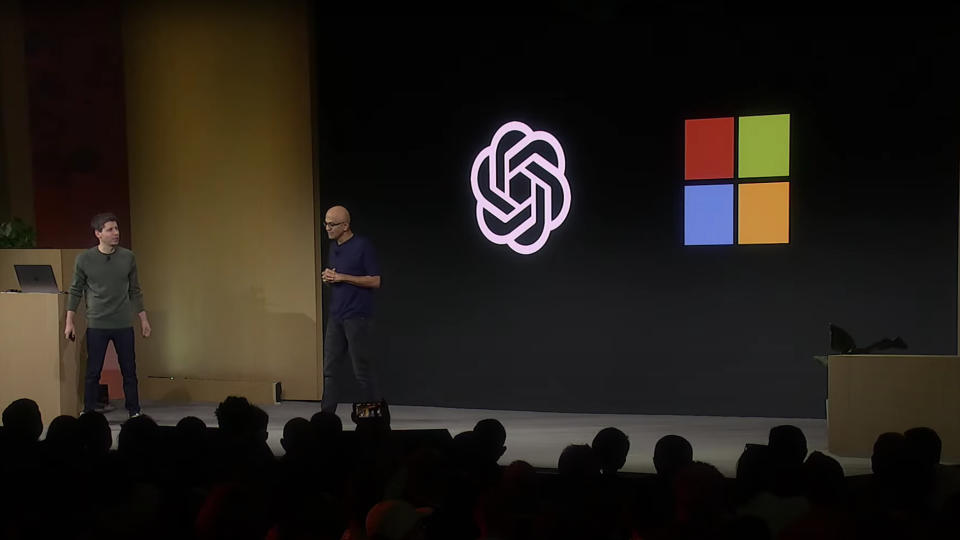
Last year, a report indicated OpenAI was on the precipice of achieving superintelligence (codenamed Q* (Q-Star))which might have contributed to Sam Altman's firing. It further disclosed that the company would hit AGI within a decade or sooner with Chief Scientist Ilya Sutskever heading the operations on that front at the time.
OpenAI CEO hasn't been shy about his ambitions of achieving AGI, but Microsoft's Satya Nadella doesn't seem to be too concerned about superintelligence. His focus is centered elsewhere as highlighted in a previous interview:
"I'm much more focused on the benefits to all of us. I am haunted by the fact that the industrial revolution didn't touch the parts of the world where I grew up until much later. So I am looking for the thing that may be even bigger than the industrial revolution, and really doing what the industrial revolution did for the West, for everyone in the world. So I'm not at all worried about AGI showing up, or showing up fast. Great, right? That means 8 billion people have abundance. That's a fantastic world to live in."
While on an interview with The Economist's Editor-in-Chief, OpenAI Sam Altman and Microsoft CEO Satya Nadella talked about the future of AI. Altman disclosed that the company is still chasing down the AGI benchmark, though he didn't indicate whether the company was taking a radical or incremental trajectory while exploring possibilities in the space.
When questioned about the safety of such a major technological breakthrough, Altman admitted that there's no big red button designed to stop the progression of AI. He added that if OpenAI is to achieve superintelligence AGI, people would have the standard "two-week freakout" before things go back to normal:
"One thing I say a lot is that no one knows what happens next, and I can't see the other side of that horizon with any detail. But it does seem like the deep human motivations will not go anywhere."
When it comes to maintaining privacy and security regarding AI, Sam Altman says there should be an "international agency" mandated to examine the technology's safety and regulate AI like an airplane to prevent it from harming humanity.
Elon sues OpenAI for stark betrayal of its founding mission, amid copyright infringement issues
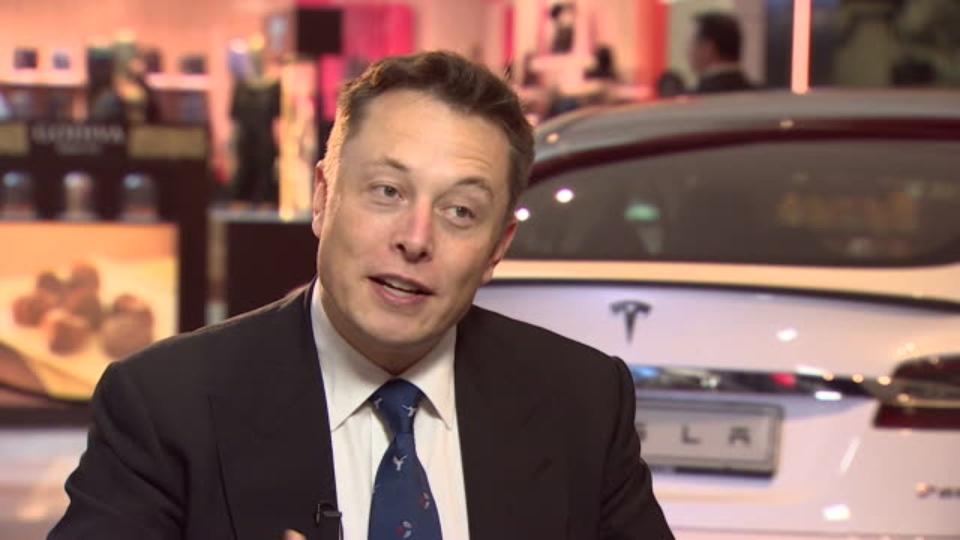
Earlier this year, Elon Musk recently filed a lawsuit against OpenAI and Sam Altman for abandoning its initial mission and vision — to make AI available for everyone for free. The billionaire claimed OpenAI has been transformed into a closed-source de facto subsidiary of Microsoft and is now more focused on generating revenue, while referring to the ChatGPT maker's GPT-4 model as “a de facto Microsoft proprietary algorithm.”
Musk added the GPT-4 model constitutes AGI and wants the law to compel OpenAI to revert to its founding mission, which includes making its research, findings, and technological advances easily accessible to the public.
Elon Musk has been rather vocal about AI-themed advances and has even indicated we're on the verge of the biggest technology revolution with AI, but there won't be enough power by 2025. He believes there's a 20% chance AI might end humanity, but still says the technology should be explored despite inevitable doom.

